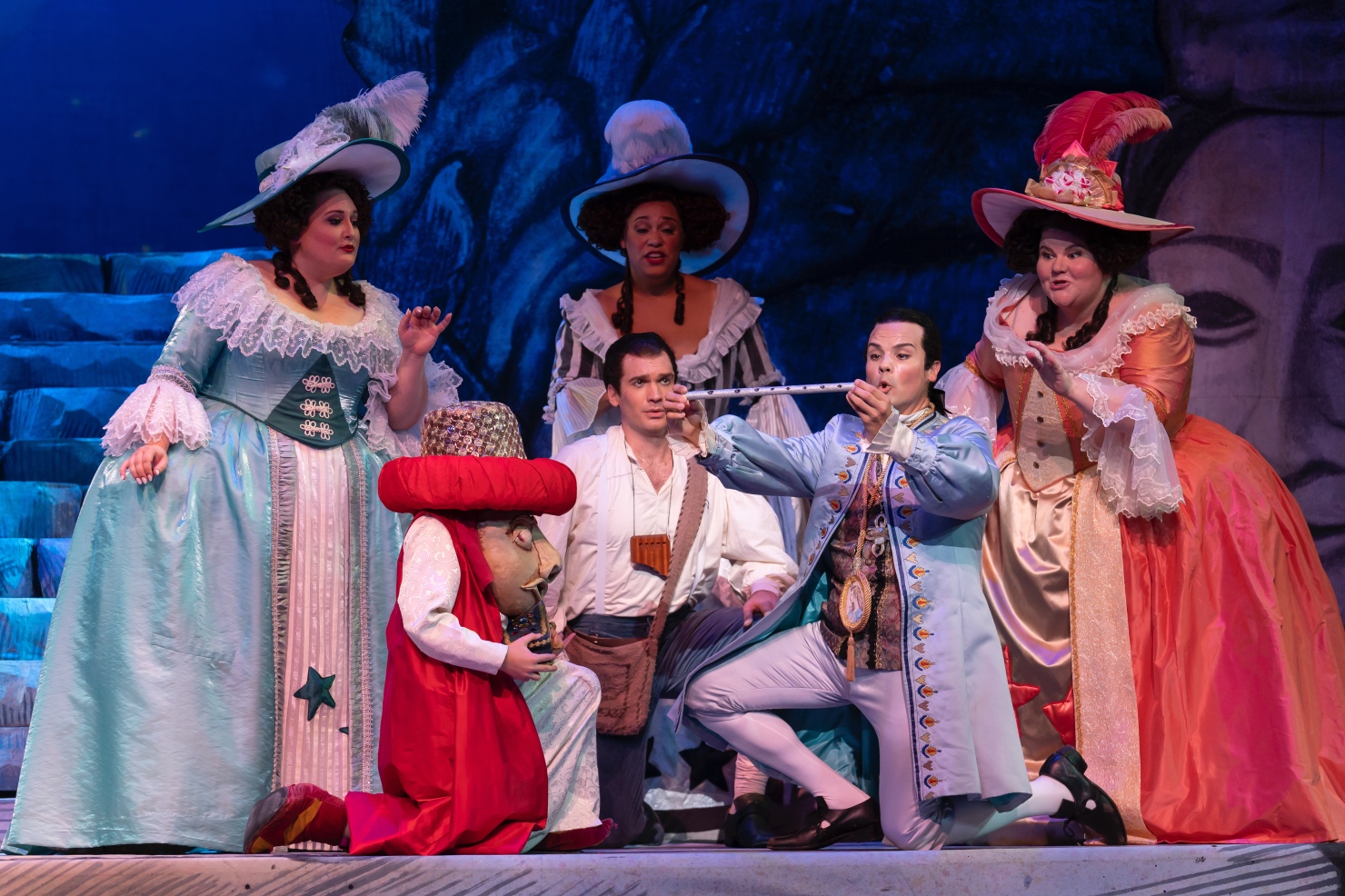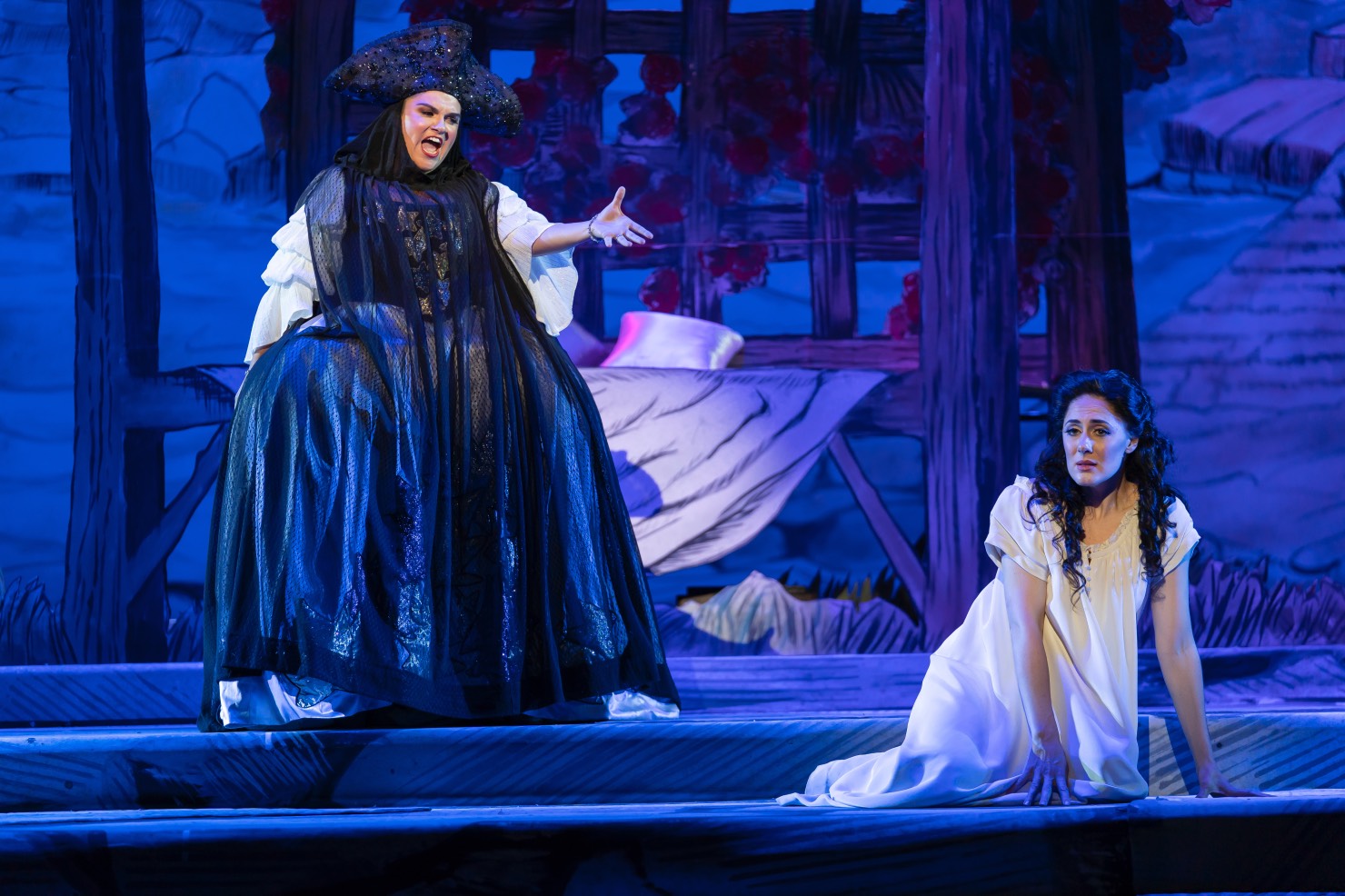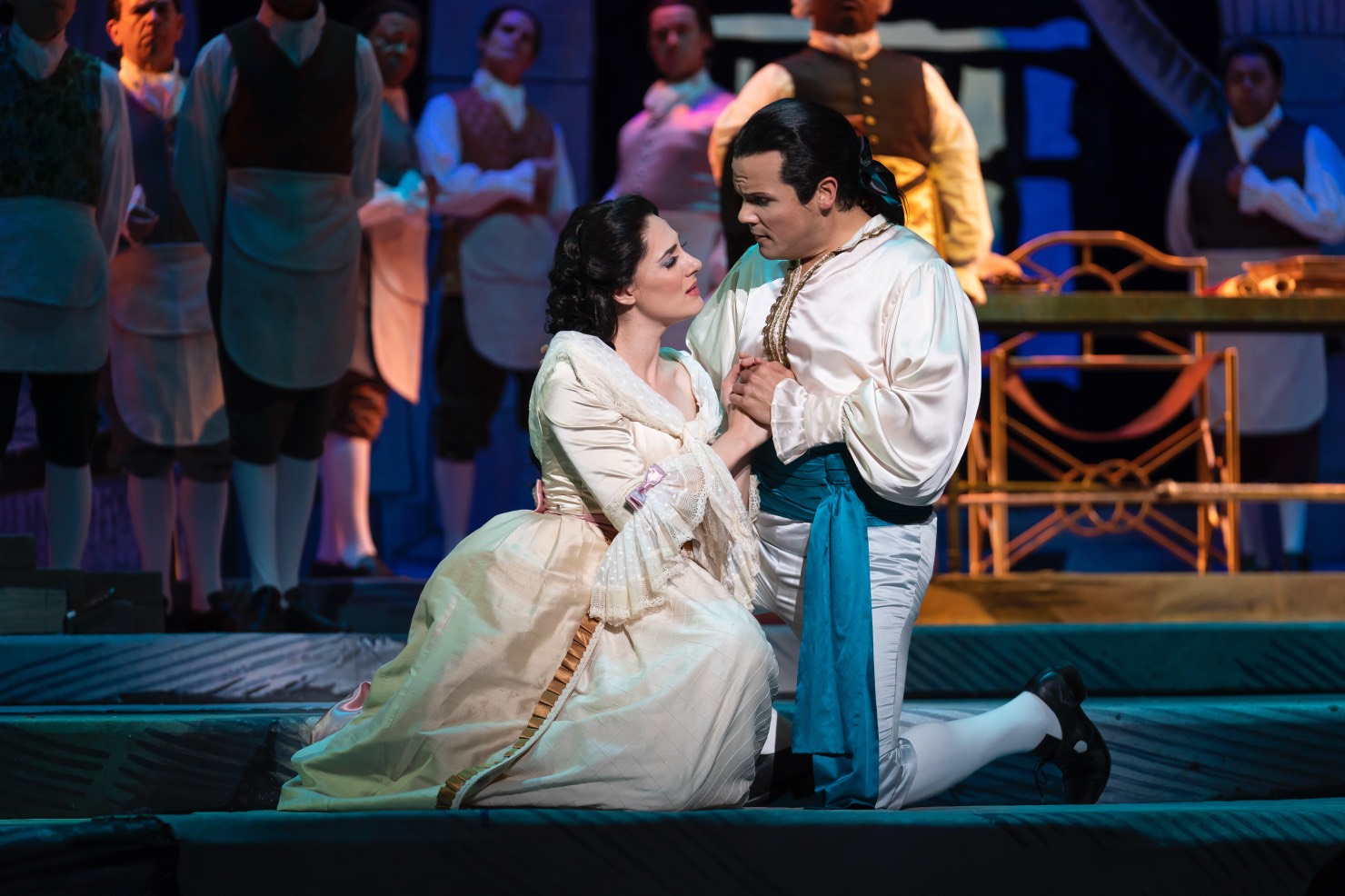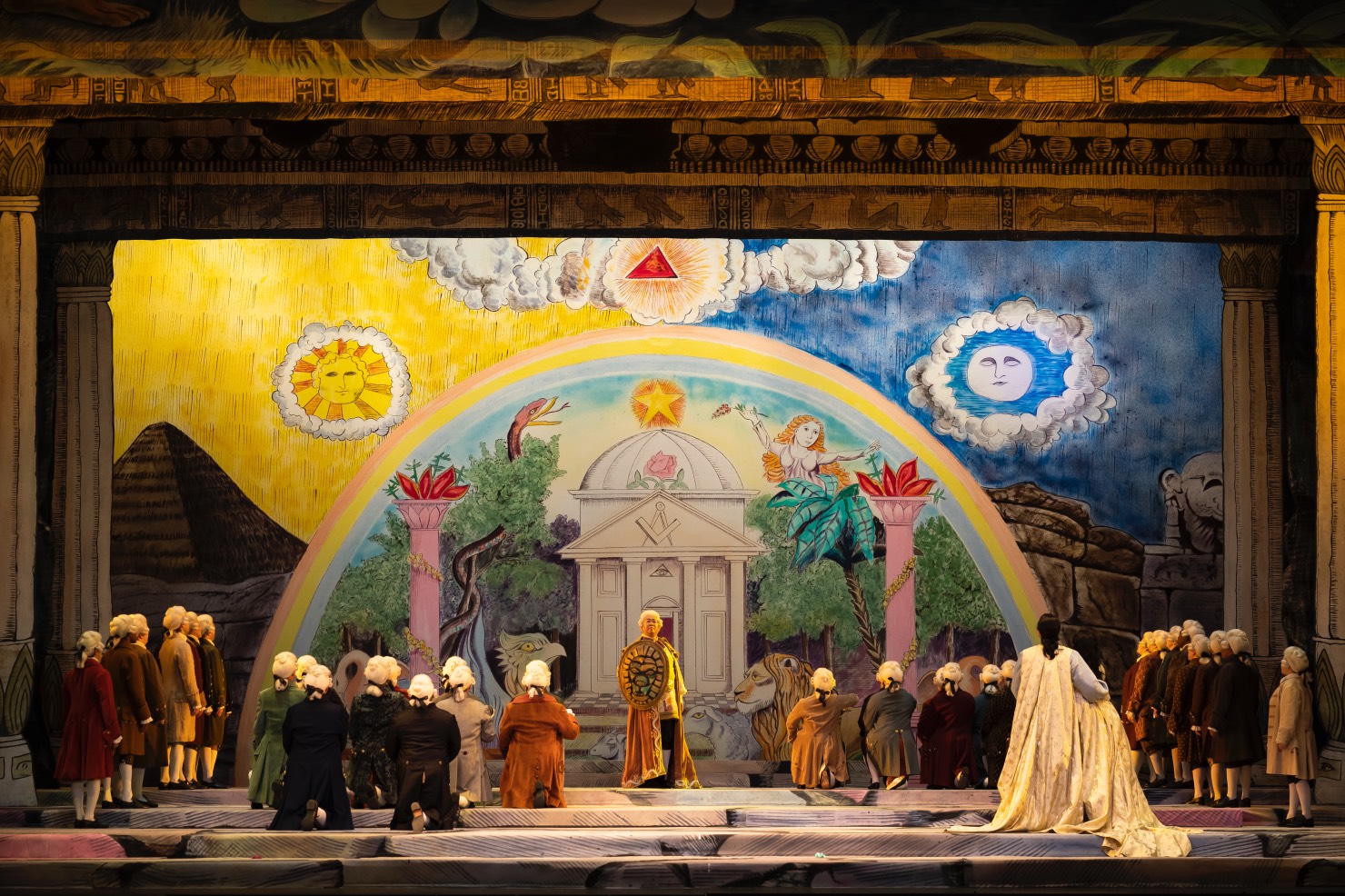
Treat yourself to WNO's Magic Flute
ReviewI have vivid memories of reading Maurice Sendak’s classic Where the Wild Things Are with my parents as a child and falling in love with the beloved illustrator’s not-so-scary monsters. I think it would be hard to find a child of my generation who doesn’t have a warm nostalgia for Sendak’s works. On Saturday night, at the Kennedy Center’s Opera House, when the curtain rose on the Sendak-designed production of The Magic Flute, I was immediately transported back to that childlike place, gazing on a gigantic Sendak story book come to life.
The production which premiered in Houston in 1980, and now directed for Washington National Opera by Christopher Mattaliano, is a joyful, imaginative, detailed, whimsical, and outright beautiful telling of Mozart’s fairy tale.

Cartoony but never dumbed-down, childlike but not childish, this production invites audiences to tag along with Tamino on his adventure through a magical realm full of dragons, starry queens, mysterious temples, and all manor of Sendakian creatures. Together, Mattaliano’s direction and Andrew Porter’s English translation tread the fine line of making the often obtuse plot of this allegorical fairy tale, with its masonic symbolism and outdated, if not downright offensive, mores more accessible to a modern, English-speaking audience in a way that doesn’t cheapen the work, or feel forced.
A cast of charismatic singing actors with impeccable comic timing to go with their across-the-board excellent Mozartean singing are the whipped cream and cherry on top of this operatic ice cream sundae. Tenor David Portillo, with his Ken-doll good looks and clear, buoyant, leggiero voice, steps into the Prince Charming role of Tamino with ease, and Sydney Mancasola pairs perfectly with him as Pamina, with her warm, inviting stage presence, and silvery soprano voice, she beautifully navigated Mozart’s delicate vocal lines.
In any halfway decent Flute, Papageno should be a scene-stealer, and baritone Michael Adams both stole scenes and won over hearts in the role. From his first entrance, in the spectacular costume designed by Sendak, he charmed the opera house. His mastery of the clownish physical humor called for by the role made him one to watch, even when he wasn’t the focal point of a scene.

Just the way he fidgeted, or became distracted, or entertained himself when he was bored by the solemn proceedings of Sarastro’s temple are always funny, and perfectly in-character for Mozart’s bird-man. Adams managed to have chemistry with every performer he shared the stage with. His scenes with Portillo’s Tamino play like a buddy comedy, where Portillo is the “straight-man” to Adams’ buffoon, and his duet with Mancasola’s Pamina was a highlight of the evening. Adams’ scenes with David Cangelosi’s Monostatos, the only performer on the stage who was any match for Adams’ virtuosic clowning, were riotous.
And how refreshing it is to see a mature character tenor in the role of Monostatos. Cangelosi sang with a bright, pingy tone, and seemed to be having so much fun with the silly role. Thankfully, Andrew Porter’s translation smoothed over the more problematic issues with the character, and Cangelosi played him as a cartoonish scoundrel, akin to Wile E. Coyotee.

It’s fair to say that more than a few opera lovers have one thing on their mind when buying a ticket to The Magic Flute: those high F’s! And after hearing Kathryn Lewek’s Queen of the Night, those fans will have walked away happy. Lewek’s voice is rich and dark for a coloratura, and it gives her Queen the gravitas that she needs. It’s impressive to hear a voice with so much heft manage to reach the Queen’s heights with such seeming ease, and she stopped the show with both of her wildly difficult arias.
Bass Wei Wu has become a familiar face on the WNO stage, and on Saturday, he performed the role of Sarastro with a grandfatherly warmth, rather than the solemn aloofness that is cliche to the role, and Wu’s voice was as hearty and warm as his presence.
Alexandria Shiner, Deborah Nansteel, and Meredith Arwady, with their spears and robust voices may have been three Valkyries just as well as Three Ladies, and they seemed to be having the time of their lives clowning about in their wonderfully absurd costumes and harassing Papageno.

In the pit, conductor Eun Sun Kim kept things bright and breezy, and offered a steady, guiding hand in more than one moment when the singers on stage threatened to leave the pit behind. Principal flutist Adria Sternstein Foster played with a clean and clear tone through all of her “magic” solos.
For anyone in the Washington area who has been looking for the right opportunity to bring little ones to the opera, I can’t recommend this Magic Flute highly enough. Between the marvellous Sendak designs and the top-notch performances, this Flute is a sweet treat.
And if you don’t have any young ones to take to the opera, then I still can’t recommend it highly enough. Go treat yourself to an operatic ice cream sundae with whipped cream and a cherry on top!

Comments